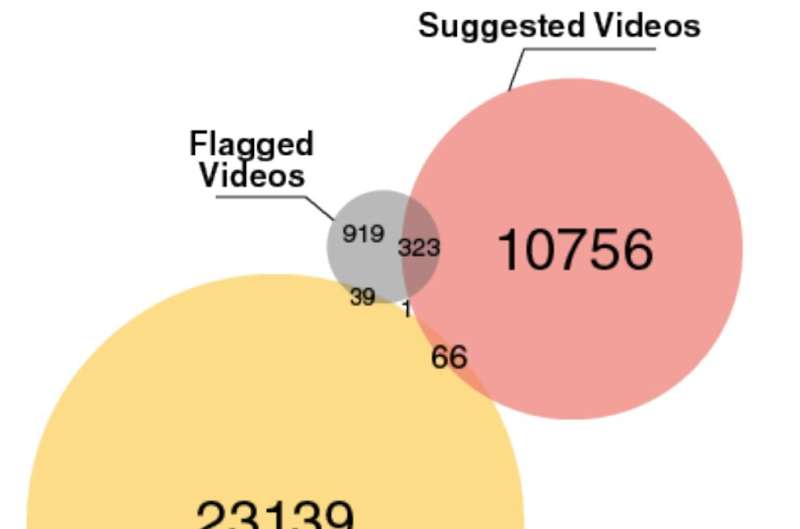This article has been reviewed according to Science X's editorial process and policies. Editors have highlighted the following attributes while ensuring the content's credibility:
fact-checked
trusted source
proofread
Report: A network of channels tried to saturate YouTube with pro-Bolsonaro content during 2022 Brazil election

Experts have identified coordinated efforts to saturate YouTube's recommender algorithm, flooding users with pro- Bolsonaro content during the 2022 Brazil election.
Researchers from the University of Exeter and Instituto Vero have uncovered a complex, web-like influencer system of channels that shaped political narratives during this period. This is in addition to YouTube's own recommender algorithm which also generates suggestions based on users' viewership patterns.
This network of influencer-driven videos was promoted by mentions, tags, interviews, and cuts (shorter video formats) and heavily contributed to the volume of recommended political videos and channels. The majority of this content echoed right-wing presidential candidate Jair Bolsonaro's political ideologies.
Researchers were assisted by a dedicated team of several dozen volunteers, who collected more than 1,200 videos using search keywords, capturing at least 30,000 recommended videos. They were analyzed between October 10th and November 30th, 2022, to coincide with the first and second rounds of Brazilian elections.
Building upon Mozilla's RegretsReporter browser extension, University of Exeter and Instituto Vero built five cluster groups of analyzed videos, showing which videos and channels recommend one another.
After cluster grouping, the videos were further categorized into five topical themes: Threats to Democracy, Candidates/Elections, Public Policy, Religion, and Other. Both qualitative and quantitative methods were used to give a fuller picture of how different thematic categories were connected.
Despite a balance in the number of videos between right- and left-leaning political camps, pro- Bolsonaro political narratives appeared to have been the most recommended by all five cluster channel groups. These are: Group A: Lula and diverse media, Group B: Bolsonaro and diverse media, Group C: Liberal media, Group D: Podcasts and radio shows and Group E: Secondary Bolsonarista cluster.
Additionally, groups of channels featuring content labeled "threats to democracy," such as voter fraud and corruption, also received the majority of recommendations: 37 percent. Meanwhile, groups B, D, and E—mostly Bolsonaro affiliated channels—featured more than half of the content categorized as "threats to democracy."
A significant majority of participants perceive a strong connection between politics and social and economic spheres. For instance, 98 percent of volunteers ranked public security, race, LGBT+ issues, and the economy as political themes, and transportation, health, education, indigenous and feminist issues as adjacent to politics.
YouTube content mirrors the electoral climate. Over 65 percent of the videos analyzed fell into the "candidates and elections" category, descriptive of the season and the various elements of the electoral process: candidate campaign narratives, debates, news of political analysis, and the vote.
Dr. Chico Camargo, Lecturer in Computer Science at the University of Exeter and coordinator of this project, said, "Our study peers deeper into the networks and communities of content producers that function alongside YouTube's recommender algorithm. These networks deliberately inject political influence into the content users see."
Dr. Beatrice Bonami, head of science and innovation at VERO institute, said, "Although platforms are built for consumers, the report shows that citizens are engaged in making political decisions by browsing and consuming content online, and we should address this fact if we want to protect and foster democracy."
Becca Ricks, Head of Open Source Research & Investigations at Mozilla, said, "Beyond the political context of the report, crowdsourced research enables us to study users' experiences on platforms as they occur in real time. This grants us valuable insight into how these influential platforms impact people and society."
More information: Report: uploads-ssl.webflow.com/602444 … olitica-reduzido.pdf
Provided by University of Exeter





















